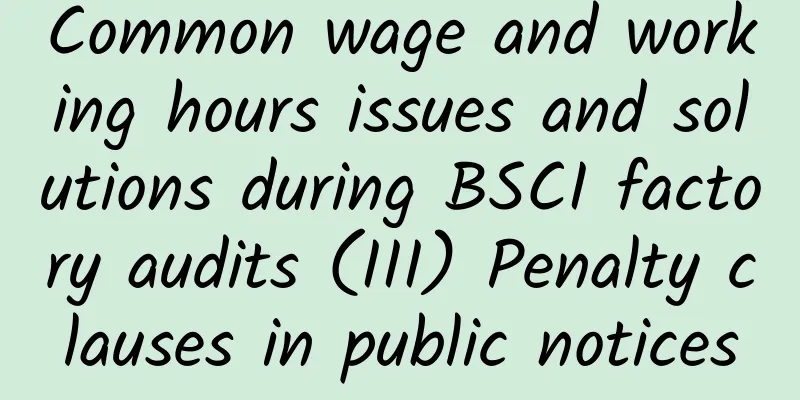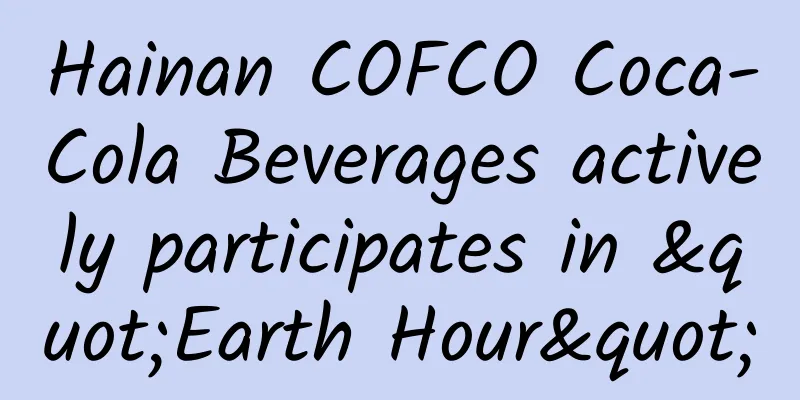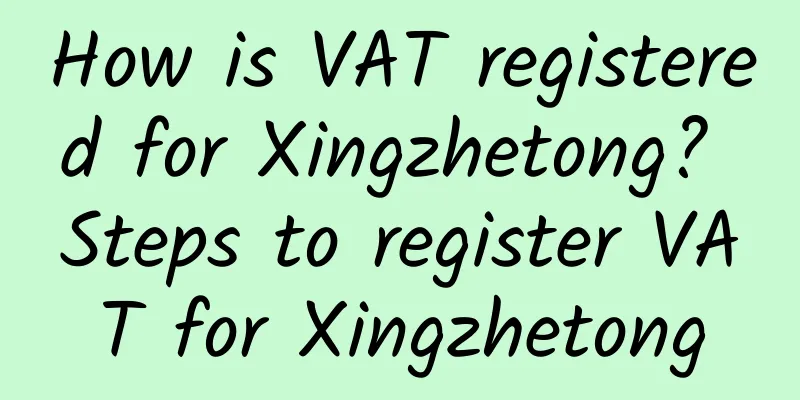SA8000 helps Chinese enterprises truly go global

|
SA8000 helps Chinese enterprises truly go global SA8000 is a constraint on the power of capital by social conscience, a "big stick" against "sweatshops", a "protective umbrella" for workers, and a propeller for Chinese companies to truly go global. Mr. Stephen Shih, the second secretary of the US Embassy in China, told Economics that SA8000 is not a trade barrier because it is not a government action, but a private certification. However, some enterprises in southern China have failed in exporting their products because they have not passed the SA8000 certification. SA8000 has been pointed out by some public opinion as a technical barrier. Some people claim that if the US launches the SA8000 mechanism, the losses to China's industry, especially the Pearl River Delta where labor-intensive industries are highly concentrated, will be immeasurable. This is a trade "stick" for the US. With the US election approaching, SA8000 has become an election campaign tool. But this statement is inaccurate. Zhao Qiong, an associate researcher at the Guangdong Academy of Social Sciences, told Economics that SA8000 should not be exaggerated. Promotion is very meaningful, but it must be separated from the US government because the certification body is a private, independent organization and has nothing to do with the government. Currently, Zhao Qiong is conducting an investigation in Dongguan on the subject of SA8000. The world's first international standard of ethics SA8000 is an international standard established by the Council on Economic Priorities Accreditation Agency (CEPAA) of the United States in August 1997. SA8000 means "social responsibility standard" and is the English abbreviation of Social Accountability 8000. Like ISO9000 quality management system and ISO14000 environmental management system, SA8000 is an international standard that can be audited by a third-party certification body. According to a gentleman from Beijing Zhongbiaolian Enterprise Management Consulting Co., Ltd., although SA8000 is an American standard, it is widely recognized, just like TOEFL scores are required for studying abroad. The uniqueness of this standard is that it is the world's first international standard for ethical standards. Its purpose is to ensure that the products supplied by suppliers meet the requirements of social responsibility standards and protect the basic rights and interests of mankind. It stipulates the responsibilities that companies must bear to society and stakeholders, and specifies minimum requirements for specific issues such as working environment, employee health and safety, employee training, compensation, and trade union rights, such as prohibiting the employment of child labor and eliminating gender or racial discrimination. SA8000 has only one international unified certification body: SAI (Social Accountability International). Experts in the industry believe that SA8000 is another important international standard after ISO9000 and ISO14000, and will sooner or later be transformed into the ISO standard; passing the SA8000 certification will become another necessary weapon for enterprises in international market competition. Ms. Zhang from Beijing Zhongbiaolian Enterprise Management Consulting Co., Ltd. told Economics Magazine that due to the fierce market competition, SA8000 has been recognized by the society. If you do not get this certification, people will discriminate against you. After joining the WTO, Chinese enterprises have to compete with multinational companies, and they cannot do without SA8000 certification. Is it a "big stick" or an "umbrella"? Two years ago, Hong Kong newspapers reported that a toy factory in Shenzhen used 400 child workers to pack toys, which caused a global sensation. This toy factory in Shenzhen supplies many toy retailers in the United States. The American customer immediately commissioned an investigation team to investigate. Although no child labor was found, it was confirmed that the factory had serious overtime and low wages, and provided false working hours and wage information during multiple factory inspections. Therefore, the supplier qualification of the factory and its affiliated companies was cancelled, and other customers also cancelled their orders one after another. In the end, this group company with 4 factories and nearly 8,000 workers was forced to close. It is reported that the German Importers Association has formulated the "Social Behavior Code", which stipulates that German importers should be authorized by the SA8000 Association to review the social behavior of their suppliers (foreign exporters). This code is likely to be adopted by the French and Dutch importers associations. Since the three countries are the main textile and clothing import markets of the EU, and their import share accounts for more than 50% of the entire EU, this requirement will bring great pressure to Chinese export companies. The relevant trade organizations of the United States, France, Italy and other countries that traditionally purchase Chinese light industrial products are also discussing an agreement to involve Chinese textile, clothing, toy and footwear manufacturers in SA8000 certification as a basis for their selection of suppliers. The SA8000 standard is a constraint on the power of capital by social conscience. From the perspective of protecting workers, SA8000 is a boon to the majority of workers. It will largely prevent unreasonable wages, excessive labor, unsafe working environment, child labor, corporal punishment and other violations of workers' rights. At present, China's exports are mainly labor-intensive products. According to the SA8000 standards, some enterprises will face severe challenges. A Hong Kong-funded enterprise in Shajing Town, Shenzhen, with more than 3,000 employees, found that its monthly expenditure (mainly overtime wages and safety facilities) would increase by 3 million yuan after checking the SA8000 requirements, which the enterprise could not afford. Does this mean that China's labor-intensive industries will not survive? In fact, after carefully studying the various conditions of SA8000, you will find that many conditions are the same as the labor protection policies issued by the government. As long as you fully comply with national laws and regulations, you can basically pass the SA8000 certification. In this respect, the SA8000 standard is a "stick" for illegal enterprises and a "protective umbrella" for workers. Crack down on sweatshops In recent years, "sweatshops" have been exposed in some economically developed areas of China. The living and working environment of workers in these factories is extremely bad, their health, life and human rights are not guaranteed, their wages are extremely low, their working hours are too long, and the labor intensity is intense. The All-China Federation of Trade Unions conducted a survey on foreign-funded enterprises in Guangdong Province, and the statistics obtained are worrying. The survey found that more than a quarter of employees could not receive their wages on time, nearly half were forced to work more than 8 hours a day, about 62% worked 7 days a week, one-fifth had been physically or mentally harassed, and more than half of the workers' income was below the minimum wage standard. After investigating China's garment industry, international trade policy analyst Duncan Green said: "China has good labor laws, but they are not enforced. Many workers are not aware of their right to vacation, overtime restrictions, or even labor contracts. In many factories, working hours are extended indefinitely; the working environment is full of dangers: toxic chemicals, fire hazards, and industrial accidents are everywhere." Some people question that SA8000 is a requirement imposed on China by Western countries and does not conform to China's national conditions. However, economic observer Zhong Dajun told Economics that China's labor costs are currently lower than those in Southeast Asia, about one-seventh lower, and one-fortieth to one-fifth of those in Western developed countries, which is already low enough. In today's China, many companies have gone through the initial start-up stage and have a certain strength, and can fully implement SA8000 certification. Some people say that our companies cannot meet the SA8000 certification standards, but that is just the opinion of certain interest groups. Zhu Han from SGS believes that since SA8000 is aimed at protecting workers' rights, employers will not take the initiative to obtain the certification. However, Western labor organizations are currently strongly demanding the promotion of SA8000, and many companies are also actively participating in the certification in order to improve their own image. For example, Avon, a cosmetics company, requires its suppliers to obtain SA8000 certification. According to a toy supplier, "When buyers visit our factories, they don't look at the equipment or the hospitality, but go to the employee cafeteria, toilets and dormitories. They want to see the physical and mental safety of the employees, the lack of environmental protection and product safety." The Certification and Accreditation Administration of China has publicly stated that "the SA8000 standard will definitely be promoted in the country." Obviously, the government will never support companies violating labor laws as a means of gaining cost advantages. An upward force SA8000 certification generally takes one year, the certificate is valid for three years, and is reviewed every six months. Zhao Qiong, an associate researcher at the Guangdong Academy of Social Sciences, believes that SA8000 means increased costs for some small businesses, but for companies with lofty ideals, certification can not only reduce market resistance, but also assess the companies every year in the future. In the long run, the companies will form something institutionalized and acquire advanced corporate concepts. It is understood that since 1995, about 8,000 Chinese companies have been required by foreign companies to obtain SA8000 certification. With my country's entry into the WTO, especially as large multinational companies increase their investment and procurement in China, Chinese companies are increasingly affected by SA8000. Currently, among the 259 corporate organizations that have obtained SA8000 certification certificates worldwide, 42 are from my country, ranking second only to Italy's 45. For a high-quality local government with modern awareness, SA8000 is also something worth promoting. On March 13, 2002, Shenzhen Hi-Tech Industrial Park Property Management Co., Ltd. obtained SA8000 certification, becoming the world's first property management company to pass the SA8000 system international certification. This made Lucent Technologies of the United States decide to invest in Shenzhen Hi-Tech Zone. Lenovo Computer originally wanted to move out of the Hi-Tech Zone, but seeing that the property management company in the zone had become a company certified by an international organization, it not only did not move, but instead increased investment and took root in Shenzhen Hi-Tech Zone. Some experts pointed out that SA8000 has a positive significance for expanding domestic demand. In the United States, the CEO of Ford Motor Company found that the market purchasing power was too low, so he took the initiative to increase workers' wages in order to increase the society's ability to buy cars. If the treatment of workers is not protected, it will fall into a vicious circle: low wages, insufficient purchases, competition to reduce product prices, lower workers' wages, and even less purchasing power.
1. Core labor standards (1) Child Labor Companies should not use or support the use of child labor and should work with other individuals or interest groups to take necessary measures to ensure the education of children and adolescents who are subject to local compulsory education and not to place them in unsafe or unhealthy working environments and conditions. (2) Forced Labor Companies shall not use or support the use of forced labor, nor require employees to pay a “deposit” or deposit their identity documents upon commencement of employment. (3) The company should respect the freedom of association and collective bargaining rights of all employees. (4) Discrimination. The company shall not discriminate against employees in hiring, compensation, training, promotion, retirement, etc. based on race, social class, nationality, religion, disability, gender, sexual orientation, union membership or political affiliation; the company shall not allow coercive, abusive or exploitative sexual harassment, including gestures, language and physical contact. (5) Disciplinary measures. The Company shall not engage in or support corporal punishment, mental or physical coercion, or verbal abuse. 2. Working hours and wages (1) The company should not require employees to work more than 48 hours a week under any circumstances, and should provide at least one day off every seven days; overtime hours should not exceed 12 hours per week, except in special circumstances and short-term business needs; and overtime workers should be guaranteed additional allowances. (2) The wages paid by the company to its employees should not be lower than the minimum standards stipulated by law or the industry, and must be sufficient to meet the basic needs of the employees and paid in a form convenient for the employees, such as cash or check. Deductions from wages cannot be punitive. The company should ensure that it does not adopt purely labor-related contract arrangements or false apprenticeship systems to circumvent its obligations to employees under relevant laws. 3. Health and Safety The company should have the knowledge to avoid various industrial and specific hazards, provide employees with a safe and healthy working environment, take adequate measures to reduce risk factors at work, and try to prevent accidents or health injuries; provide a safe and hygienic living environment for all employees, including clean bathrooms, clean and safe dormitories, sanitary food storage equipment, etc. 4. Management System Senior management should formulate open and transparent company policies on social responsibility and labor conditions based on this standard, which can be understood and implemented at all levels, and conduct regular reviews; appoint a full-time senior management representative to be responsible for the specific matters, and allow non-management personnel to choose a representative to communicate with them; establish and maintain appropriate procedures to prove that the selected suppliers and subcontractors comply with the provisions of this standard. |
<<: SA8000 Social Responsibility Standard
>>: Corporate social responsibility: Compliance cannot be understood in a one-sided way
Recommend
What is the difference between eBay and Eachnet? eBay sellers, come on!
eBay and Eachnet are two platforms with similar n...
FAQ about BSCI certification
FAQ about BSCI certification Q: What is BSCI cert...
What is Outlook? What are the applications of Outlook?
What is Outlook? Microsoft Office Outlook is a co...
What is the 360chainXms system? What are the functions of the 360chainXms system?
What is the 360chainXms system? 360chainXms is an...
How is Agile Express? What is the shipping operation process of Agile Express?
How about Agile Express? Agile Express is a membe...
SEDEX factory inspection focus
SEDEX factory audit is also a common and universa...
What is Dream Pay? What products does Dream Pay have?
What is Dream Pay? Mengxiangfu is a leading payme...
Cross-border e-commerce has become a new engine for Tianjin's foreign trade development
At present, cross-border e-commerce has become a ...
eBay overseas warehouse access rules in 2020~
eBay overseas warehouse access rules and regulati...
AVE Certification Counseling Pre-Inspection Preparation-AVE Factory Inspection Consultation Special
AVE certification guidance and preparation work b...
Benefits of Adding YouTube Videos to Your eBay Product Listings
There are many benefits to adding YouTube videos ...
What is ibay365? What are the advantages of ibay365?
What is ibay365? ibay365 is an ERP management sys...
Zomato - the Indian version of Dianping
Founded in 2008, Zomato is a food ordering, takea...
How does SEDEX certification cost come about?
The costs of SEDEX certification are: 1. Audit fe...
What is a third-party service provider?
What is a third-party service provider? What are ...









